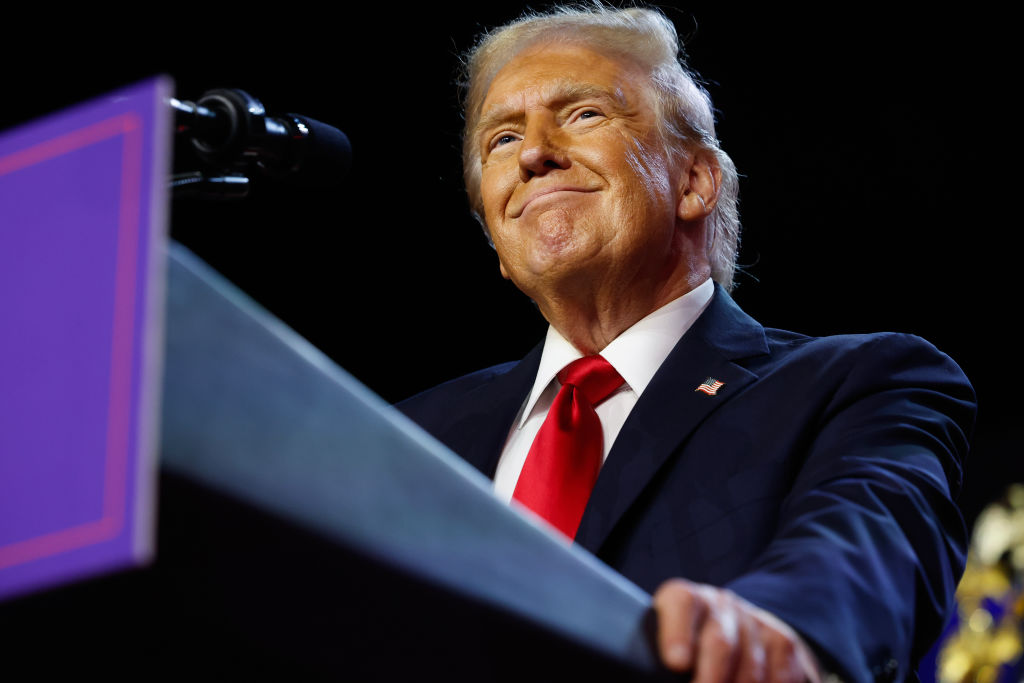Editorial Note: Opinions and thoughts are the author’s own and not those of AFROTECH™.
Americans aren’t the only ones prepping for another tedious four years under President-elect Donald Trump.
Since the results of the 2024 election projected Donald Trump as the winner, tech leaders from companies like Meta, Amazon, OpenAI, and others have shelled out seven-figure investments to Trump’s inaugural fund. According to CBS News, Amazon founder Jeff Bezos has donated $1 million and plans to stream the inauguration on Prime. Meta, the parent company of Instagram and Facebook, will donate $1 million, along with OpenAI CEO Sam Altman, who delivered an optimistic statement about the President-elect’s election win.
“President Trump will lead our country into the age of AI, and I am eager to support his efforts to ensure America stays ahead,” Altman said in a statement, per The Associated Press.
Elon Musk, CEO of X, Tesla, and SpaceX, and general pop culture menace has been a lurking presence within the Trump administration.
After claiming to stay out of politics, Musk donated over $277 million to the Trump campaign and other republican candidates, according to CBS News. He was also appointed to co-lead the new administration’s Department of Government Efficiency (DOGE) with fellow Trump loyalist and billionaire, Vivek Ramaswamy. His constant appearance in Trump’s post-election tour has elicited concerns about how much influence he has in curating policy. His unpopular antics with X (formerly known as Twitter) don’t strike much favor in the hearts of Americans who know what he’s capable of doing.
Other tech companies, like Google and Reddit, have donated to past inaugural funds but have remained silent about donating to Trump’s inaugural fund. However, Google CEO Sundar Pichai plans to meet with Trump to discuss policy, specifically his plans for Artificial Intelligence (AI).
Trump has announced plans to repeal President Joe Biden’s landmark 2023 executive order on AI, Axios reports, which sets regulations and protections for use of the technology. Besides vowing to deregulate the government’s influence in big tech, making positive comments about cryptocurrency, and encouraging the use of AI for national security — the incoming administration has offered limited information regarding concrete policy positions.
Compared to Trump’s first presidency in 2017, tech companies are now reversing their previously frosty relationship with Trump with the hopes of currying favor. Trump’s first term was a volatile four years, as he managed to sour relations with members of his party, his cabinet, world leaders, and tech CEOs.
Trump’s treatment of Hillary Clinton, as well as his refusal to accept the 2020 election results, did not bode well for the already fractured relationship he had with billionaire Bezos. Yet, this time around, the CEO has a “positive feeling” about President-elect Trump’s second term, according to AP news. After the attempted coup on Jan. 6, 2021, Meta disabled Trump’s Facebook and Instagram accounts, which were restored in 2023. Meta had also faced accusations of being biased toward accounts with right-wing views. Mark Zuckerberg was seen dining at Mar-a-Lago with Trump and other conservative pundits, BBC reported in November 2024.
Voters may be surprised to see such a stark difference in opinion compared to 2017. However, I would say that the writing has been on the wall. Publications like the Los Angeles Times and Washington Post (owned by Bezos), along with other reputable papers, have a history of endorsing a presidential candidate — this year, they opted not to endorse anyone.
According to The Washington Post, more than 250,000 of its readers responded by canceling their subscriptions, admonishing the decision not to endorse. While I don’t believe that endorsements from an editorial board can make or break an election, it helps readers understand where these sources stand, especially in an era where journalism faces immense backlash from audiences and political opponents alike.
However, the choice not to endorse a candidate isn’t a result of going in a different direction or a testament to how effective these endorsements are — but it is a reflection of just how hostile the incoming administration’s objective is going to be. While campaigning, President-elect Trump has made it clear that he plans to go after everyone who pursued legal action against him or who isn’t loyal to him. Compared to Biden, who has been heralded as a pro-worker president for his support of unions and working people, President-elect Trump has presented himself as a friendly yet capricious ally to Big Tech.
Tech giants courting favor with Trump are cause for alarm. Though tech CEOs have helped influence or endorse certain policies in past administrations, they have never held positions of power in which they can enact policies that can directly affect their companies and the general public. With Musk glued to his side and Zuckerberg actively seeking a position in the administration, we’re fast-tracking toward an oligarchy.
Over the past year, the tech sector has been plagued with layoffs and the decimation of diversity programs, which will only decrease the number of diverse leaders in tech, health, and beyond. But tech CEOs aren’t worried about the upkeep of these structures. They’re only concerned with their bottom line, and they know that cozying up to the Trump administration can only further their pockets.

